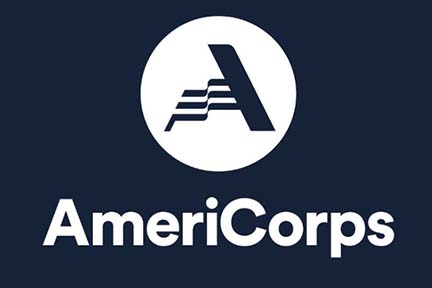
by Becky Andrus | Jun 29, 2022 | Regional News

Gov. Whitmer Announces $13.4 Million in AmeriCorps Funding to Meet Local Needs, Strengthen Communities
LANSING, Mich. – Today, Governor Gretchen Whitmer announced the Michigan Community Service Commission will receive $13.4 million in federal funds to support over 1,100 Michigan AmeriCorps members who work hand in hand with organizations across the state to help communities tackle their toughest challenges.
“Today’s AmeriCorps investments will help us grow Michigan’s economy and ensure every community can thrive,” said Governor Whitmer. “These investments – and the over 1,100 dedicated AmeriCorps members who will serve those in need and address critical challenges – will continue to make a tremendous impact in communities in every region of Michigan. Together, let’s help our working families and resilient communities thrive.”
During the last program year, similar investments helped AmeriCorps members serve 32,231 youth, treat 1,073 acres of public land, provide housing and financial services to 4,404 individuals and increase disaster preparedness for 4,300 individuals.
“AmeriCorps service continues to help solve pressing issues across the state,” said Michigan Community Service Commission Executive Director Ginna Holmes. “There is a tremendous return on investment through the federal funding of AmeriCorps and the positive impact this service has on communities across the state.”
AmeriCorps funds will support 23 Michigan organizations through 28 subgrants to expand their reach and impact in Michigan communities.
Those organizations include:
|
|
|
|
|
|
|
|
|
Albion College AmeriCorps
|
|
|
|
|
|
|
|
|
|
|
|
Child & Family Services of Northwestern MI
|
YouthWork Conservation Corps
|
|
|
|
Environmental Stewardship
|
|
|
|
|
|
|
|
Community Economic Development Association of MI
|
|
|
|
|
|
Community Economic Development Association of MI
|
AmeriCorps Intermediary Program
|
|
|
|
|
|
|
Flint Community School Corps
|
|
|
|
|
|
|
Returning Citizens AmeriCorps Program
|
|
|
|
|
|
|
|
|
|
|
Environmental Stewardship
|
|
|
MI Education Corps – Math & PreK Reading Corps
|
|
|
|
|
|
|
MI Education Corps – Reading Corps
|
|
|
|
|
|
|
|
|
|
|
Environmental Stewardship
|
Ingham County Health Department
|
Power of We Consortium AmeriCorps Project
|
|
|
|
|
Luella Hannan Memorial Foundation
|
Hannan Foundation AmeriCorps Program
|
|
|
|
|
MI Coalition Against Homelessness
|
|
|
|
|
|
MI College Access Network
|
AdviseMI / MSU College Advising Corps
|
|
|
|
|
MI College Access Network
|
|
|
|
|
|
|
|
|
|
|
|
|
MI Primary Care Association
|
MPCA Community HealthCorps
|
|
|
|
|
|
|
Economic Opportunity Corps
|
|
|
|
|
Special Olympics Michigan
|
Special Olympics Michigan AmeriCorps
|
|
|
|
|
|
|
Teach for American Detroit (Professional Corps)
|
|
|
|
|
United Way of Genesee County
|
Flint Urban Safety and Health Corps
|
|
|
|
Disaster Preparedness, Healthy Futures, Safer Communities
|
Urban Neighborhood Initiatives
|
Detroit AmeriCorps Mentor Program
|
|
|
|
|
Wayne Metropolitan Community Access Agency
|
2Gen Job Readiness Program
|
|
|
|
|
|
…

by Becky Andrus | Jun 29, 2022 | Regional News

Gov. Whitmer Delivers $1,000 Bonuses to Nearly 38,000 Childcare Professionals
5,500+ childcare providers receiving $368 million in grants to provide $1,000 staff bonuses and keep childcare facilities open for Michigan families
LANSING, Mich. – Today, Governor Gretchen Whitmer continued her commitment to expand access to quality, affordable childcare for Michigan families by awarding $368 million in grants to childcare programs across the state. Over 5,500 childcare programs received funding through the second round of the Child Care Stabilization Grant. These funds will keep programs open for business and provide $1,000 bonuses for full-time staff.
“Michigan thrives when every family has access to quality, affordable childcare that meets their needs,” said Governor Gretchen Whitmer. “I worked across the aisle to secure a historic investment in childcare—including grants to stabilize and strengthen the childcare industry and bonuses for childcare professionals. Thanks to the Child Care Stabilization Grant, over 5,500 childcare programs can keep their doors open, hire more qualified professionals, and continue to improve supports for kids and families. All our kids deserve a strong start. These grants are another investment in their future and our state’s prosperity.”
“As a father, I know the importance of having skilled, childcare professionals to care for our children. That’s why Governor Whitmer and I continue to fight to pay childcare professionals a living wage,” said Lt. Governor Garlin Gilchrist II. “These bonuses are a small step toward our bigger goals to improve compensation for childcare professionals and support childcare entrepreneurs—all while keeping care affordable for working families.”
These grants were part of a bipartisan budget Governor Whitmer signed that included game-changing investments in childcare and delivered on the kitchen-table issues that matter most to families, communities, and small businesses.
Grants were awarded to licensed centers, group homes, family homes, and tribal childcare providers. Funds may be used to lower tuition costs for families, increase compensation for early educators, recruit and train new staff members, improve learning environments, and more.
“The Child Care Stabilization Grants have uplifted the morale of the center. Staff and families are feeling heard and seen,” said Nawal Alsaeed, associate director of Kreative Kids Learning Center in Inkster. “Our staff is feeling recognized and validated and they are motivated to continue in the field of early childhood. Two staff members have gone back to school and are earning degrees in education. I have another two staff members who have registered for CDA credentials. These funds will be the catalyst to continued growth of child care businesses.”
“Thanks to this grant we were able to give our staff bonuses and upgrade our facility with an emphasis on safety and accessibility,” said Jeff and Yvette Fredricks, owners and operators of a group home in Saginaw. “We were also able to provide our families with peace of mind by providing relief in case of unexpected times and unforeseen circumstances by way of our ‘Parent Forgiveness Grant Fund’ — which helped families pay their tuition balance when times were tough.”
“I have been running a quality, caring, and loving in-home daycare for 26 years. I have been through many life challenges and changes through the years with some very hard moments. I have always kept my program going without taking sick days and rarely time off,” said Shari Marceau owner and operator of Shari’s Early Learning Center, a home-based childcare in Marquette. “I am extremely thankful for this money! I feel this is my first bonus in this career.”
“These grants have been a critical lifeline to providers who are fighting to stay in business and serve families and children throughout Michigan,” said Lisa Brewer Walraven, director of Child Development and Care in the Office of Great Start at the Michigan Department of Education (MDE). “It has been our privilege to provide this ongoing support to the operational costs of childcare providers and ensure those who are working in the programs are supported and recognized for the important value of the work they do.”
The Child Care Stabilization Grant is a non-competitive grant for childcare programs to help stabilize operations and support the health and safety of children and staff. Eligible licensed childcare programs applied for funding in spring 2022.
- Total grant awards: 5,544
- Average awards:
- Family home program: $11,394
- Group home program: $21,775
- Childcare center: $120,664
- $1,000 to 25,756 full time staff members
- $500 to 12,207 part time staff members
Staff in the Michigan Department of Education’s Office of Child Development and Care worked diligently with the support of partners across the state to manage and process the grants to ensure that all eligible childcare providers were able to apply for and receive the funds as quickly as possible. Additional information about the program is available at Michigan.gov/childcare.
|
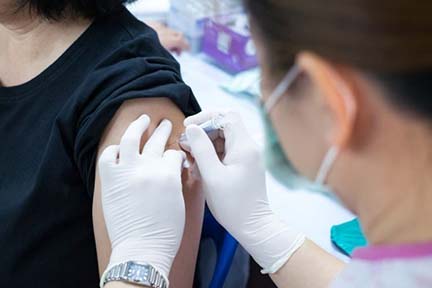
by Becky Andrus | Jun 28, 2022 | Regional News
Oakland County Health Division Offers COVID-19 Vaccine for All Eligible Ages
- Doses for 6-month-old to 5-year-old residents available at Oakland County Health Division beginning Wednesday.
- Oakland County Health Division Medical Director Dr. Russell Faust encourages parents and guardians to get the COVID vaccine for their children before they begin school.
Pontiac, Michigan – COVID-19 vaccine for children 6 months to 5 years old will be available at Oakland County Health Division clinics in Pontiac and Southfield beginning Wednesday, June 22, after the Centers for Disease Control and Prevention (CDC) approved emergency use authorization for these doses over the weekend. Appointments are encouraged, but walk-ins are welcome. To make an appointment, visit OaklandCountyVaccine.com or call the Oakland County Nurse on Call hotline at 800-848-5533.
“Oakland County parents will have many options where they can vaccinate their children to protect them against COVID,” Oakland County Health Officer Calandra Green said. “The Health Division is among hundreds of providers throughout the county administering COVID vaccine to our youngest residents including pediatricians, Federally Qualified Health Centers, and other locations beginning this week.”
When the CDC authorized emergency use of the pediatric dose (ages 5-12 years old) of COVID vaccine, a majority of Oakland County parents and guardians opted to have their children receive the vaccine at a pediatric or other private or non-profit clinic setting.
Oakland County Health Division Medical Director Dr. Russell Faust encourages parents and guardians to get the COVID vaccine for their children this summer.
“COVID-19 vaccines have undergone extensive safety monitoring,” Faust said. “All children should get vaccinated, especially before we begin the new school year in September.”
Oakland County has about 66,000 residents ages 6 months to 5 years old.
Contact your doctor or local pharmacy prior to visiting to determine vaccine availability. Doses for all ages are available at the North Oakland Health Center, 1200 N Telegraph, Building 34E, in Pontiac and the South Oakland Health Center, 27725 Greenfield Rd., in Southfield from 9 a.m. – 4:30 p.m. Monday – Friday. For more information or to register for an appointment, go to OaklandCountyVaccine.com
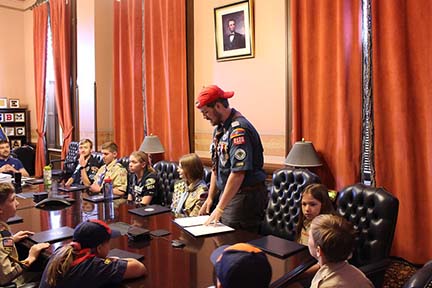
by orionontv | Jun 28, 2022 | Scouting
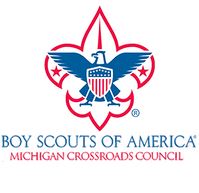
Scouting delegation presents report to state legislators
Scouting’s Michigan Crossroads Council held its first ever “Scout Day at the Capital” in Lansing on June 23.
Written by Jesse Quintana
Scouts from all over Michigan attended to represent the organization at the state legislature. The event included activities like archery and rock climbing on the lawn as well as a free lunch.
Over 500 scouts flooded the grounds from 10:00 a.m. to 3:00 p.m. Throughout the day, scouts entered the capital building and took hour-long guided tours. The tour took scouts through all five floors. The floors had many educational features, including portraits of former governors and a room full of past state flags.
“I think scouts can learn a lot about our state government,” Council CEO Don Shepard said of the event. “Whatever these scouts participate in, they’re bound to learn a little bit of something.”
At 11:30 a.m. twelve youth delegates selected from across the state assembled at a podium on the capitol steps. They expressed how the Scouting movement has changed their lives and the lives of others around them.
“Scouting does truly care about how their nation is and how it’s running,” Vivien Burke of Waterford Troop 185 said. “They care about the future, and the younger scouts are definitely the future. Showing them how everything works and runs will definitely teach them.”
After the speeches, scouts dispersed across the lawn to participate in other activities. One of the more popular activities was the rock climbing wall. Scouts went head-to-head with politicians in the “challenge a scout” competition.
Another activity was archery. The inflatable range used bows with foam-tipped arrows. The targets were plastic balls suspended by air streams. There was a science table with many experiments that the scouts could conduct. There were balloons that scouts would fill by running and rockets that would run on water and “fizz tablets.”
After the speeches, a hotdog lunch was provided to all in attendance. According to the scouts, it was a great experience that also showcased the institution’s functions.

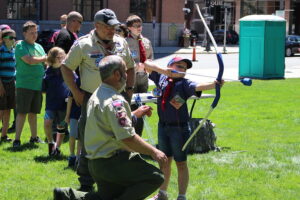
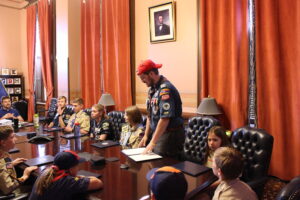

by Becky Andrus | Jun 27, 2022 | Health and Wellness
|
Press Release
FOR IMMEDIATE RELEASE: June 23, 2022
CONTACT: Chelsea Wuth, 517-241-2112, [email protected]
First mosquito-borne virus of 2022 detected in Michigan mosquitoes
Residents urged to protect against mosquito bites
LANSING, Mich. – Mosquitoes recently collected in Bay County have tested positive for Jamestown Canyon virus (JCV) at the Michigan Department of Health and Human Services Bureau of Laboratories (MDHHS BOL). These are the first infected mosquito pools detected for 2022. Residents are reminded that the best way to protect themselves against JCV and other mosquito-borne illnesses, including Eastern Equine Encephalitis (EEE) and West Nile virus (WNV), is to prevent mosquito bites.
Every summer in Michigan, bites from mosquitoes carry the risk of spreading diseases to people and animals. JCV sickened six Michiganders in 2021. Also reported last year were 46 cases of WNV and one case of EEE. Seven of the WNV cases resulted in death.
The JCV virus is spread to people through bites from infected mosquitoes. Most cases occur from late spring through mid-fall. Illness can develop within a few days to two weeks following a bite from an infected mosquito. While most people do not become ill, initial symptoms can include fever, headache and fatigue. In rare cases, it can cause severe disease in the brain and/or spinal cord including encephalitis and meningitis.
“It only takes one bite from an infected mosquito to cause a severe illness,” said Dr. Natasha Bagdasarian, MDHHS chief medical executive. “We urge Michiganders to take precautions such as using an EPA-registered insect repellent when outdoors, avoiding areas where mosquitoes are present if possible, and wearing clothing to cover arms and legs to prevent bites.”
While the JCV is found throughout much of the U.S., cases have been increasing in the Midwest. This likely reflects increased awareness and testing, but may also be due to an increase in the presence of the virus in the environment. This is the second year that the MDHHS BOL is offering virus testing of mosquito pools collected by local health departments and county mosquito control programs. Testing is offered to improve detection and notification of mosquito-borne viruses.
JCV can be spread by mosquitoes that become infected when they feed on deer or other animals that have the virus in their blood. Infected mosquitoes spread the virus to other animals or people through bites. Arboviruses including WNV and EEE spread when mosquitoes contract the virus from biting infected birds then biting a human.
Residents can stay healthy by using simple, effective strategies to protect themselves and their families. The following steps are recommended to avoid mosquito-borne diseases:
- Apply insect repellents that contain the active ingredient DEET, or other EPA-approved products to exposed skin or clothing. Always follow the manufacturer’s directions for use.
- Wear light-colored, long-sleeved shirts and long pants when outdoors. Apply insect repellent to clothing to help prevent bites.
- Maintain window and door screening to help keep mosquitoes outside.
- Empty water from mosquito breeding sites around the home, such as buckets, unused kiddie pools, old tires or similar sites where mosquitoes lay eggs.
For more information, visit Michigan.gov/EmergingDiseases. |











